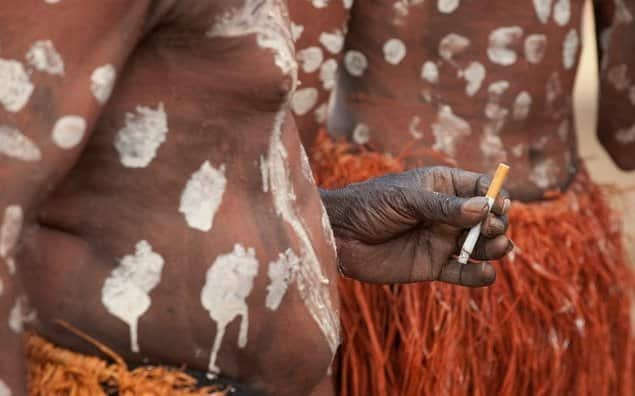Researchers from the Australian Institute of Tropical Health and Medicine at James Cook University are spearheading this project, also known as Smoke free Space project- aimed at preventing chronic diseases caused by tobacco in rural and remote northern Australia.
AITHMs Associate Professor Alan Clough said the collaborative project will be of tremendous benefit to northern Australian Indigenous populations. He says: Tobacco use is of particular concern for the health of Aboriginal and Torres Strait Islander peoples, amongst whom smoking prevalence is significantly higher than in the non-Indigenous population, and the rate is not falling as it is in the rest of Australia.
Tobacco: the most preventable cause of ill health and early death

An Aboriginal man smokes a ciggarette at a Dance Festival in Laura, north Queensland, Saturday, June 21, 2009. (AAP Image/Dave Hunt) NO ARCHIVING Source: AAP
Hence, tobacco smoking continues to be the most preventable cause of ill health and early death among Aboriginal and Torres Strait Islander peoples.
With more than 10 years experience studying the incidence of smoking on Indigenous communities, Professor Clough believes that Smoke free Spaceproject will achieve its goal.
Our previous studies demonstrate that reducing indigenous smoking and reducing harm from tobacco smoke is achievable, he said.
In this project JCU has partnered with leading Indigenous organisations, Arnhem Land Progress Association (ALPA) and Aboriginal Resource and Development Services (ARDS). Together they will work with community leaders and households to develop effective explanations and support the creation and expansion of smoke-free spaces to reduce the prevalence of environmental tobacco smoke.
Smoke Free Spaces Project started in late 2016. Its results will be published in peer review journals in June 2018.
